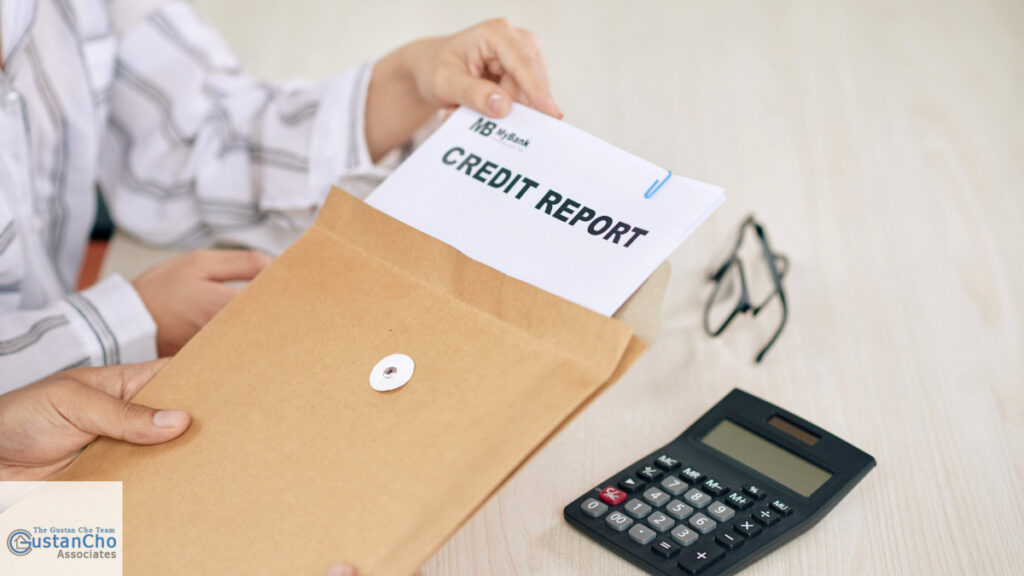Qualifying For Home Loan After Bankruptcy And Housing Event
In this article, we will discuss and cover Qualifying For Home Loan After Bankruptcy And Housing Event. The journey to homeownership can be challenging, especially after experiencing a financial setback like bankruptcy or a significant housing event such as foreclosure or a short sale. However, it is important to know that all is not lost. With time, planning, and a clear understanding of the requirements, you can still qualify for a home loan. Here’s a comprehensive guide to help you understand the process in qualifying for home loan after bankruptcy.
Qualifying for Home Loan After Bankruptcy and Housing Events
Experiencing bankruptcy or a significant housing event such as foreclosure, short sale, or deed-in-lieu of foreclosure can feel like an insurmountable obstacle to homeownership. However, with time, diligent financial management, and the right information, qualifying for home loan after bankruptcy is possible. This article outlines the key steps and requirements for qualifying for a home loan after such events. Click here to qualify for home loan after bankruptcy
Understanding Bankruptcy and Housing Events
Bankruptcy is a legal procedure aimed at assisting individuals or businesses in eliminating or repaying their debts while being protected by the bankruptcy court. The two most common types are Chapter 7, which eliminates most debts, and Chapter 13, which sets up a repayment plan.
Housing events include:
- Foreclosure: When the lender takes possession of the property due to non-payment.
- Short Sale: When the property is sold for less than the amount owed on the mortgage, with lender approval.
- Deed-in-Lieu of Foreclosure: The borrower willingly hands the Title certificate to the lender to avoid foreclosure.
Qualifying For Home Loan After Bankruptcy and Waiting Periods
The waiting periods after bankruptcy or housing events before you can qualify for different types of loans are critical:
- Conventional Loans:
- Chapter 7 Bankruptcy: Four years after the discharge date.
- Chapter 13 Bankruptcy: Two years from discharge or 4 years from dismissal.
- Foreclosure: 7 years from the completion date.
- Short Sale/Deed-in-Lieu: 4 years from completion (can be reduced to 2 years with extenuating circumstances).
- FHA Loans:
- Chapter 7 Bankruptcy: It’s 2 years from the date of discharge.
- Chapter 13 Bankruptcy: After twelve months of on-time payments with court approval.
- Foreclosure: 3 years from the completion date.
- Short Sale/Deed-in-Lieu: 3 years from the completion date.
- VA Loans:
- Chapter 7 Bankruptcy: Two years after the discharge date.
- Chapter 13 Bankruptcy: After twelve months of on-time payments with court approval.
- Foreclosure: 2 years from the completion date.
- Short Sale/Deed-in-Lieu: 2 years from the completion date.
- USDA Loans:
- Bankruptcy (Chapter 7 or 13): 3 years from the discharge or dismissal date.
- Foreclosure: 3 years from the completion date.
- Short Sale/Deed-in-Lieu: 3 years from the completion date.
Improving Your Chances of Qualifying For Home Loan After Bankruptcy
Despite the waiting periods, there are several proactive steps you can take to elevate your possibility of qualifying for home loan after bankruptcy:
- Rebuild Your Credit:
- Timely Payments: Consistently pay all bills on time.
- Reduce Debt: Pay down existing debts to lower your debt-to-income ratio.
- Secure Credit: Utilize secured credit cards or obtain added as an approved user on a family member’s account to establish credit.
- Save for a Down Payment:
- Larger Down Payment: A considerable down payment reduces lender risk and enhances your loan terms.
- Stable Savings: Demonstrates financial responsibility and stability to lenders.
- Maintain Stable Employment:
- Consistent Income: Stable and sufficient income is crucial for loan approval.
- Job History: A steady job history in the same field can be advantageous.
- Seek Professional Advice:
- Mortgage Advisor: Seek a mortgage advisor to understand your options and develop a strategy.
- Credit Counseling: Credit counselors can help you make a plan to improve your financial health.
Special Programs
Certain programs can assist individuals recovering from financial setbacks:
- FHA Back to Work Program: Allows borrowers to qualify for a loan one year after a bankruptcy, foreclosure, or short sale if they can demonstrate that the event was due to circumstances beyond their control and have since improved their financial situation.
- VA Loans: These are accessible to veterans and active-duty military members, frequently offering more flexible requirements.
- State and Local Programs: Many states and localities offer programs to help individuals regain homeownership after financial hardships.
Qualifying for home loan after bankruptcy or a housing event is challenging but achievable. Understanding the waiting periods, rebuilding your credit and financial stability, and seeking special programs can pave the way to homeownership. You can overcome past financial difficulties and secure a home loan with patience and persistence. Qualify for home loan after a housing event, Click here!
The Recovery Of The Housing Market After The 2008 Financial Crisis
- The 2008 Real Estate Meltdown was the worst economic disaster that not just affected the United States but the whole world
- Never since the Great Depression has the real estate meltdown of 2008 affected so many people
- Millions of Americans have lost their jobs, lost their businesses, and lost the hard-earned equity in their homes
- Millions of hard-working American workers who have retired have been forced to go back to work
- Homeowners who put 20% down payments on their home purchases just not long before the real estate meltdown of 2008 has seen the equity of their homes disappear literally overnight
- Many were left with homes that the balance of their mortgage loans was much higher than the actual value of the market value of their homes
- Millions of Americans were forced into bankruptcy
- Millions more had to foreclose on their homes because they could no longer afford their monthly mortgage payments
- The good news is home buyers can now qualify for a home loan after bankruptcy
But there are mandatory waiting periods in qualifying for home loan after bankruptcy depending on the mortgage loan program.
Qualifying For Home Loan After Bankruptcy: Can I Get My Bankruptcy Removed From Credit Report With Credit Repair?
All negative items such as bankruptcies, foreclosures, short sales, deed in lieu of foreclosures, unpaid collection accounts, tax liens, delinquent accounts, charge offs, and judgments can be removed from a person’s credit report by savvy credit repair consultants who knows the loopholes in the credit laws.
- I have seen many consumer’s get their derogatory tradelines such as bankruptcies and foreclosures and other negative items completely wiped off their credit report
- Credit Report works and yes consumers can get bankruptcies, foreclosures, judgments, charge offs, unpaid collection accounts, and late payments deleted off the credit report
- However, credit repair is not needed to qualify for a mortgage
- All public records that are removed from the credit report will be discovered by lenders
- All lenders will do a third party public records search on all borrowers
Credit repair can do more damage than good during the mortgage process.
Does Qualifying For Home Loan After Bankruptcy Possible if I Deleted my Credit Report?
As mentioned in the previous paragraph derogatory tradelines can often be removed.
- Derogatory items such as bankruptcies, foreclosures, deed in lieu of foreclosures, short sales, judgments, unpaid collection accounts, charge offs, and other derogatory items can be deleted off the credit report
- After consumers get their bankruptcy deleted off a credit report, the chances are they will get an automated approval by the automated underwriting system
- This is because the automated underwriting system will not recognize they have a bankruptcy
- This is since you got it deleted off the credit report
However, all lenders will order a third party public records report by a third party servicer where they search public records on mortgage loan applicants. Qualify for home loan after a housing event, Click here!
Third-Party National Public Records Search By Lenders
Even though bankruptcy, foreclosure, short sale, deed in lieu of foreclosure may be deleted off a credit report, that does not wipe out the public records:
- Third-party public record investigative servicers such as Lexis Nexis will catch that
- Borrowers who have not passed the mandatory waiting period after bankruptcy and/or foreclosure will get caught
- Same with judgments
- Judgments are public records and credit repair companies can delete judgments off the credit report
- However, third-party service providers will catch those who have judgments
- On another note, when applicants complete the 4-page 1003 mortgage loan application, they need to complete a questionnaire
- On that questionnaire, mortgage applicants will be asked whether or not they have filed bankruptcy, foreclosure, or have a judgment
- If the applicant checked no and if they indeed have a bankruptcy, foreclosure, or judgment, they are committing Mortgage Fraud which the feds do not take it lightly and is a felony
Deletions such as collection accounts, charge offs, derogatory credit do not matter because they are not public records.
Frequently Asked Questions (FAQs)
- How long after bankruptcy can I qualify for a home loan?
Chapter 7 Bankruptcy: Typically, you must wait 2-4 years from the discharge date to qualify for a conventional loan. For FHA loans, the waiting period is usually 2 years, and for VA loans, it’s generally 2 years.
Chapter 13 Bankruptcy: If the bankruptcy is dismissed, the waiting period for a conventional loan is usually 2-4 years. However, if you are still in the repayment plan, you may qualify for FHA and VA loans after making 12 months of on-time payments with court approval. - What is considered a housing event?
A housing event includes foreclosure, short sale, or deed-in-lieu of foreclosure. - How long after a foreclosure can I qualify for a home loan?
Conventional Loans: Usually require a 7-year waiting period from the foreclosure completion date.
FHA Loans: Require a 3-year waiting period.
VA Loans: Generally require a 2-year waiting period.
USDA Loans: Usually have a 3-year waiting period. - Can qualifying for home loan after bankruptcy possible if I had a short sale?
Conventional Loans: A 4-year waiting period is usually required, but this can be reduced to 2 years if you can show extenuating circumstances.
FHA Loans: Require a 3-year waiting period from the short sale date.
VA Loans: Typically have a 2-year waiting period.
USDA Loans: Generally have a 3-year waiting period. - What are extenuating circumstances?
Extenuating circumstances are events beyond your control, such as job loss, illness, or divorce, leading to financial difficulties. Proper documentation will be needed to prove these circumstances to the lender. - Can I improve the possibility of qualifying for home loan after bankruptcy or a housing event?
Rebuild Your Credit: Improve your credit score by paying bills on time, reducing debt, and maintaining a stable credit history.
Accumulate a Down Payment: Larger down payments can increase the possibility of loan approval and may result in better loan terms.
Steady Employment: Demonstrating stable and sufficient income can be crucial.
Seek Professional Advice: Working with a mortgage advisor or counselor can help you navigate the process and improve your chances of qualifying. - Will the interest rate be higher if I have had a bankruptcy or housing event?
Yes, borrowers with past bankruptcies or housing events are often considered higher risk, which can result in higher interest rates. However, improving your credit score and financial situation can help lower the rate over time. - What documentation will I need to provide when qualifying for home loan after bankruptcy or a housing event?
Credit Reports: Current credit reports from all three major bureaus.
Proof of Income: Recent pay stubs, W-2s, tax returns, and employment verification.
Bank Statements: Statements from the past 2-3 months.
Explanation Letter: A letter explaining the circumstances of your bankruptcy or housing event and how your financial situation has improved. - Are there special programs for individuals qualifying for home loan after bankruptcy?
FHA Back to Work Program: Designed for borrowers who can demonstrate that their bankruptcy or foreclosure was caused by circumstances beyond their control. It requires at least 12 months of on-time rental payments and proof of stable income.
VA Loans: These are available for veterans and active-duty military, often with more flexible requirements.
Local and State Programs: Various local and state programs may offer assistance or special loans for individuals recovering from financial setbacks
No Waiting Period After Bankruptcy And Housing Event
Gustan Cho Associates Mortgage Group now offers non-QM loans. There is no waiting period after bankruptcy and housing event with non-QM loans. 10% to 20% down payment is required. The amount of down payment required depends on borrowers’ credit scores. Mortgage rates depend on borrowers’ credit scores and the amount of down payment. There is no private mortgage insurance required with non-QM loans. There are no loan limit caps with non-QM loans. Homebuyers who needs help qualifying for home loan after bankruptcy, please contact us at Gustan Cho Associates at 800-900-8569 or text us for a faster response. Or email us at alex@gustancho.com.








